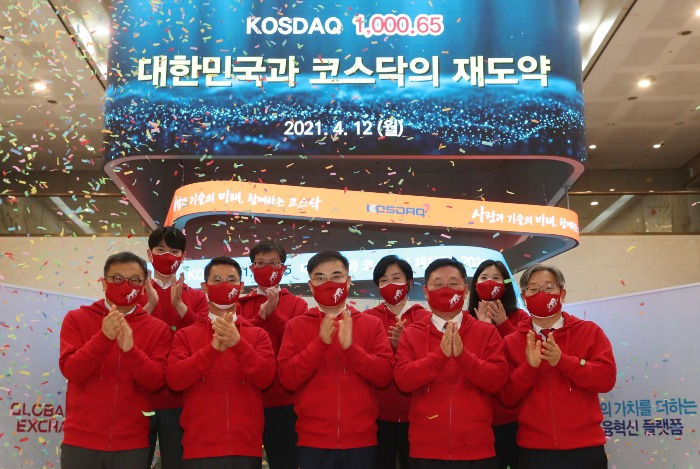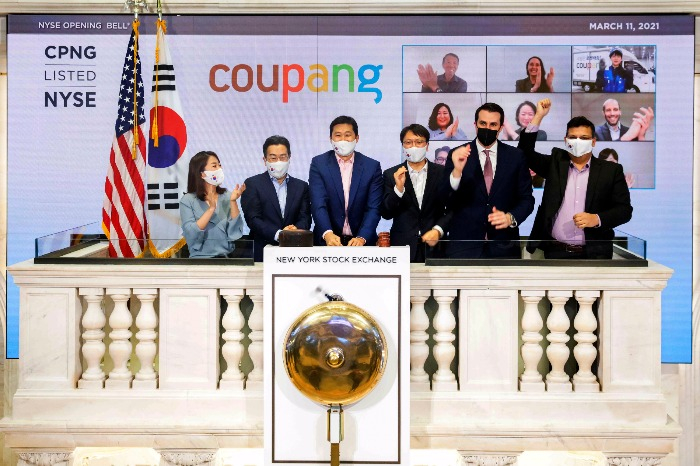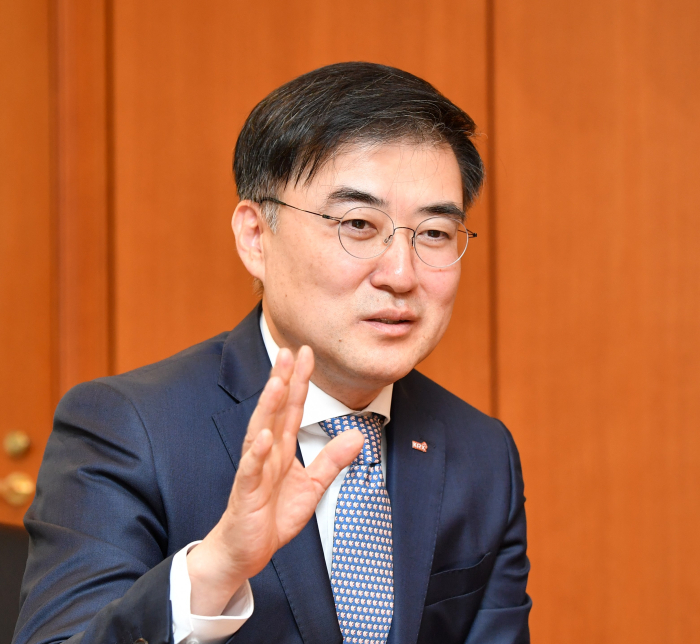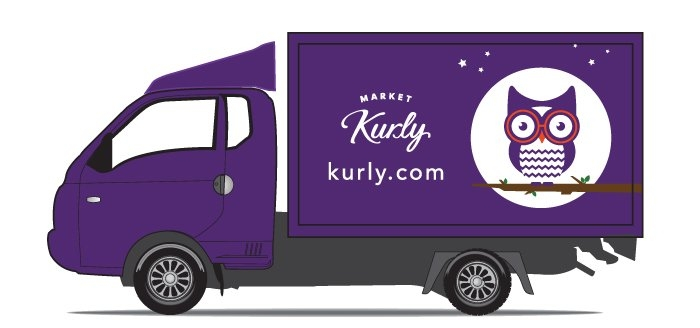Startup IPOs
Korea bourse tries to halt unicorns following Coupang in US IPO
By Apr 29, 2021 (Gmt+09:00)
3
Min read
Most Read
Samsung shifts to emergency mode with 6-day work week for executives


CJ CheilJedang to sell feed, livestock unit for $1.4 bn


Samsung Electronics' key M&A man returns; big deals in the offing


Affinity to buy SK Rent-a-Car at $572 mn, more deals expected


Keppel REIT to sell Seoul-based prime office T Tower



The Korea Exchange (KRX) will lower the bar for domestic startups' initial public offerings at home so that they will be dissuaded from joining the country's No .2 e-commerce platform Coupang Corp. in going public in the US.
"We have never experienced our capital market competing with global stock exchanges for domestic startups' IPOs," KRX Chairman and CEO Sohn Byung-doo was quoted as saying in a meeting with brokerage CEOs on Apr. 29.
"To prevent another Coupang from listing in the US, we will review our IPO process to determine whether there are any unfavorable factors for their domestic listings," Sohn said at the meeting, convened under the theme of stimulating K-unicorns' IPOs. A unicorn company is a startup valued at over $1 billion.
His remarks come as a number of highly regarded Korean startups such as Kurly Inc. and Naver Webtoon Ltd. are preparing to go public in the US, following in the footsteps of Coupang. The Korean e-commerce platform raised more-than-expected $4.6 billion in its IPO on the New York Stock Exchange last month.

To entice unicorn companies to stay at home on the Korea Exchange, the domestic bourse will ease its requirements. As long as the startups meet the criteria of having a market capitalization of 1 trillion won ($900 million), or having a market capitalization of 500 billion won with an equity capital of 150 billion won, the KRX will turn a blind eye to their past earnings and instead focus on their growth potential when reviewing their IPO applications.
Additionally, to assess their future value, the stock exchange will take into consideration the IPO candidate's projected sales, profits and cash flow for the next five to six years.
Up to now, an IPO application has been reviewed with a focus on business sustainability, based on sales, profits, market share and order backlog. Those requirements were difficult to apply to startups, which tend to take five to seven years to turn profitable.
Under the loosened criteria, a company even with a net asset value of less than half of its paid-in capital is qualified for a domestic IPO as long as it vows to improve its capital base through rights offering over the next five years.┬Ā
DUAL-CLASS SHARE STRUCTURE
Regarding a dual-class share structure, another factor behind Korean startups' preference for a US listing, Sohn said the Korean stock exchange will help their founders to keep their grip on the companies. To do so, KRX will encourage them to take full advantage of the regulation that allows the largest shareholder with less than a 20% stake to join forces with the company's second-and third-largest shareholders to jointly secure management rights.

A dual-class share structure allows a single share held by the company's founder or executive to exercise multiple voting rights. It recently came into the spotlight when it was noted that Kim Bom-suk, the founder of Coupang, received 29 votes per share after the US listing. In Korea, a bill to introduce the dual-class share structure for unlisted startups' founders is pending in parliament.┬Ā
But the main reason for Korean startups' preference in seeking a US IPO is to get a higher valuation in the world's largest stock market, something the domestic bourse will have a hard time matching, according to a venture capital source.
Last month, Kurly Inc., the operator of premium grocery delivery platform Market Kurly, selected Goldman Sachs, JPMorgan and Morgan Stanley as its underwriters for a US public listing.
South KoreaŌĆÖs largest travel platform Yanolja has begun the internal process to list in both the US and South Korea, by which the company expects to more than double its estimated enterprise value to over 10 trillion won, sources said last month.

Write to Jae-Yeon Ko at yeon@hankyung.com
Yeonhee Kim edited this article.
More to Read
-
 Enterprise valueTravel platform YanoljaŌĆÖs enterprise value seen at $11 bn if listed on Nasdaq
Enterprise valueTravel platform YanoljaŌĆÖs enterprise value seen at $11 bn if listed on NasdaqMar 02, 2021 (Gmt+09:00)
3 Min read -

-

Comment 0
LOG IN


